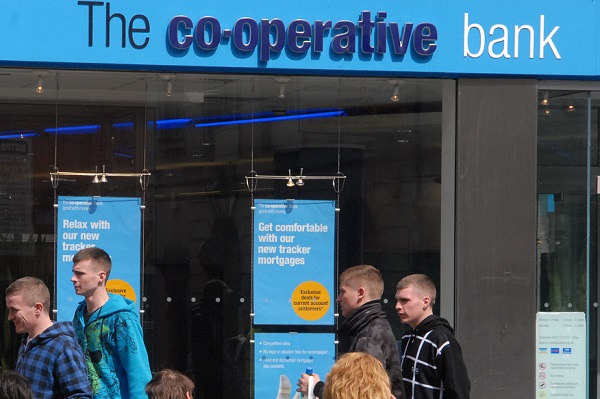 Economy
Economy 
Last weekend I visited Anne, an ex-colleague, in her new house in Taffs Well. Her estate is built on the site of the former ‘modern, gigantic bakery’ which was a joint venture by six South Wales co-operative societies together with the national Co-operative Wholesale Society (CWS). It was opened in 1956 by William Hazell, then President of the Ynysybwl Co-operative Society, who had been a miner in Lady Windsor Colliery and was the guiding hand in developing the bakery.
I have just finished writing a biography of Hazell so over recent years I have got to know him pretty well. Hazell was a man of rectitude and integrity who described himself as a co-operative pilgrim whose mission was to serve others. He was one of numerous collective entrepreneurs, such as Tom Allen of Blaina and Aneurin Davies of Aberdare, who dedicated their lives to building their co-operative societies into local economic powerhouses. Those men (and men they all were) led their societies through war, Depression, austerity and the coming of a consumer society, endeavouring to building a ‘co-operative commonwealth’ which looked to meet the needs of local people ‘from the cradle to the grave’ – for it was here within the co-operative movement that the phrase first emerged, later to be co-opted in relation to the welfare state.
The way in which co-operative societies’ Boards provided collectivist business leadership, exercised financial skill and retained the long term confidence of their memberships, whose savings were risked to fund business development, is a previously largely unremarked feature of working class organization in South Wales. From taking accountancy in evening classes, then mastering balance sheets, through managing cash flow and capital accumulation those collective entrepreneurs built multi-million pound businesses owned by local people. Their societies also acted as agencies for the Co-operative Bank, and had responsibility for the accounts of local authorities, miners’ institutes and trades union branches. The most able co-operators, such as Allen and Davies, went on to hold elected positions representing the movement on the national Board of the CWS and Davies became Chairman of the Co-operative Insurance Society. Most importantly, however, they always recognised on whose behalf they were operating and to whom they were accountable for their actions. In Hazell’s words:
A co-operative committee always realises it is handling and investing capital belonging to its thousands of small shareholders. It has to be cautious.
From the 1950s, there was an accelerating trend for local societies to give up their independence and become part of what is now the national Co-operative Group in order to compete with other retail chains. During the 1980s societies in the Rhondda, Aberdare and Ynysybwl were amongst the last in South Wales to take that path. However, necessary changes to the retail business outpaced the movement’s capacity for lay member oversight. Within the democratic structures upon which business decisions depended, the Hazells and the Davieses were replaced by people who tended to be social activists rather than collective entrepreneurs. Those skills and experiences built up over decades in running local businesses, and which informed democratic decision making became dissipated over time and then were in large part lost. Lay members were much less likely to have the skills necessary to supervise the running of large complex businesses.
It is important to recognise that the people who have served on co-operative committees in recent decades are not lesser co-operators – they have been just as committed to co-operative principles as earlier generations. However changes in co-operative retail structures have not permitted the opportunity for co-operators to gain the necessary business skills in the way that they were gained over the previous century by members running their own local societies. Without the grounding gained by running local co-operative businesses some appear to have not appreciated the need for caution. That process reached its apogee in front of the Treasury Select Committee in recent weeks when a crisis of co-operative governance was exposed. It is significant that the new Chair of the Co-operative Group Board, Ursula Lidbetter, is Chief Executive of one of the still remaining independents – the Lincolnshire Co-operative Society – and has all the skills of that earlier generation of co-operators.
Last month I received a letter from the Co-operative saying that it would not be paying me a dividend on my recent purchases as the Group had not made a profit. Such events are not unique in co-operative history. In 1922, William Hazell was deselected as President of the Ynysybwl Society because there was no dividend to distribute to members due to that Society’s support of the miners in the 1921 three month lockout. Co-operative societies in the South Wales valleys changed their businesses practices after 1921 because they realised the model they had followed was unsound, and went on to rebuild themselves successfully. The retail movement today has to grapple with a crisis of governance which is as great a challenge as was the rise of the supermarkets in the 1950s and 1960s. Co-operation is enduring one of its periodic disjunctures when its structural inheritance needs to catch up with its operational present.
Much of its current difficulties lies in its past – in the way that once essential democratic processes have become ossified, have lost their point and are unfit for purpose. The inquiries being instituted by the movement need to consider how democracy must be rooted in business competence. History needs to catch up with actuality.
Alun Burge is a leading historian of the co-operative movement in Wales.


